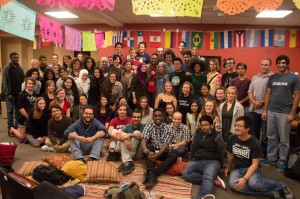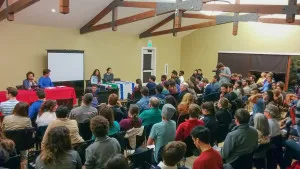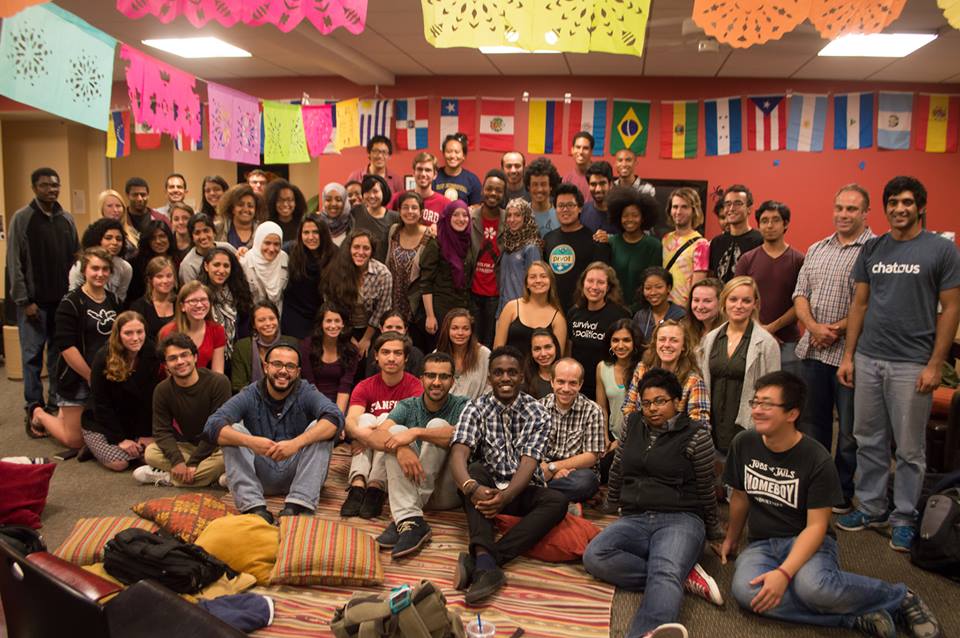A petition asking Stanford to divest from corporations that students claim engage in “specific practices that commit human rights abuses and violate international law” in the Palestinian Territories will be discussed in the ASSU Undergraduate Senate on Tuesday. The petition has been in the works since last summer, when, motivated by the violence in Gaza, several students began talking about taking action.

Among them was Sherif Ibrahim, a first-year graduate student in African studies and one of the leaders of the Stanford Out of Occupied Palestine (SOOP) divestment movement that came from those discussions.
“The damage literally was inhumane. I couldn’t believe what was happening and I couldn’t believe…that people were debating whether this was a human rights issue or not,” Ibrahim said about the conflict in Gaza. “We have privilege and we should use that privilege to confront the issues over there.”
Not everyone on campus agrees with the divestment movement’s goals or characterizations of the issue. On Wednesday, Jan. 21, several students launched an anti-divestment website and petition.
Josh Grinberg ’15, one of the student organizers of the anti-divestment efforts, says he was motivated to act because he believes the divestment movement is misguided and factually inaccurate. According to Grinberg, the movement “imposes the entire blame for the Arab-Israeli conflict on Israel.”
“It doesn’t recognize…that on at least three occasions Israel offered to make peace with the Palestinians, and on all of those occasions the Palestinian leadership refused those offers,” said Grinberg.
On campus, proponents and critics of divestment often disagree on issues such as the circumstances surrounding the wall dividing the West Bank and Israel.
“It literally separates populations based on ethnic and religious identities,” said Ibrahim about the wall. Grinberg, however, thinks characterizations such as these ignore the greater context of the situation.

(PHOTO COURTESY OF JOSH GRINBERG)
“What they [supporters of divestment] don’t mention…[is] why the security wall is there,” Grinberg said. “It was put in place to provide security for Israelis, and after the wall was built the number of terrorist attacks in Israel went down by like 98%.”
Another reason Grinberg opposes divestment efforts at Stanford is because he feels personally targeted.
“I feel threatened by the movement,” he explained. “I’m part Israeli, and I feel like this is an attack against Israel.”
Ibrahim said that the divestment movement has the opposite intention.
“We want Jewish students to feel welcome and we’re trying to figure out how to do that,” Ibrahim said. But he added that the current conversation, addressing only how Jewish and Israeli students feel about divestment, is too narrow.
“We can talk about campus climate while people are actually suffering in the Palestinian Territories,” Ibrahim said. “In Gaza, thousands were killed over the summer and Palestinian civilians are killed every other week. The question is never ‘how do Arab students feel on campus?’ It’s always a one-sided conversation, and it needs to be a conversation that includes everybody.”
Ibrahim contended that the divestment movement at Stanford is the more inclusive group and is providing that open conversation.
“The fact that we’re getting more and more organizations on board the coalition while our opposition only has two organizations I think says a lot,” he explained. “We’ve from the very beginning stressed this openness, and we want to even take it further.”
Ibrahim added that the petition supporting divestment is available for Stanford students to review and add comments and criticisms.
“We’re opening ourselves to critique,” said Ibrahim. “We’re trying to make sure that everyone feels that they have…a stake in this as a Stanford student because this is going up before the ASSU. The most important thing is that whether you’re for this or against this, students feel like we’re doing this the right way.”
As for the anti-divestment website and petition, Grinberg said they will serve the Stanford student body by providing information about divestment and about the Israeli/Palestinian conflict.
“We did our best to present as unbiased information as possible,” he said. “We had many students review the website and ask them to report anything that was inaccurate or misleading.” Grinberg added that he also asked a leader of the divestment movement to review the website as well.
Just six hours after the website went live, Grinberg said, it had over 1,000 page visits, demonstrating students’ interest in the campus conversation.
“Clearly many students were looking for this kind of resource, and I think it’s started off in a great place,” Grinberg said.
Contact Sarah Wishingrad at swishing ‘at’ stanford.edu.
